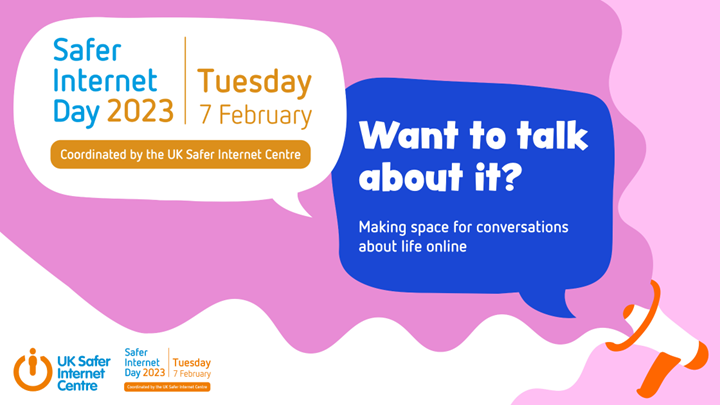Talking to Students About Life Online
Let’s face it, kids are growing up in a world that is completely different from the one we were raised in. The internet has changed how our children interact with their peers, how they learn about the world around them and how they see themselves. Whether students want to talk about life online or not, it’s important to have open dialogue with kids of all ages about online safety.
This year, in support of UK Safer Internet Day 2023 and their theme: Want to talk about it? Making space for conversations about life online, we’ve put together a list of top tips to help teachers have open communication with their students about having safe, fun, and responsible time on the internet.

Top 5 Tips for Talking to Students About Online Life
-
Understand Online Life for Students is Real Life
It’s easy to think of kids’ online lives as separate from their real lives, but they’re not. In fact, the line between what happens online and what happens in real life is blurry at best. Online life is not a game; it’s real life with its own rules, challenges and consequences that can affect everything in your student’s world – schoolwork, friendships and family relationships. Online life is not an escape from real life; it’s where kids spend much of their time now – understanding and respecting this will help teachers connect with their students, allowing for more open conversations.
-
Use Classroom Time to Discuss Digital Citizenship
Teachers have the opportunity to use classroom time to teach kids about digital citizenship. Teachable moments are everywhere, but they’re especially easy when you’re discussing topics related to technology or media consumption. For example, if your students are working on an assignment that requires them to use Google Drive or Dropbox for collaboration purposes, ask them how they would feel if someone else had access to their files without their permission – and then talk through ways they could protect themselves against this kind of situation.
-
Share Your Own Experience with Technology
Sharing your own experiences with technology is a great way to help kids learn how to use it responsibly. Think about what kinds of things would make someone nervous or uncomfortable about a website or using social media as an adult – then talk about those things with your students! Model the behavior you want your kids to adopt in their own online interactions.
-
Be a Trusted Adult
As a teacher, you are one of the most trusted adults in your students’ lives. It’s important to be approachable and friendly as you teach them about life online. Help them learn how to navigate the world safely and responsibly by giving them information that will empower them when it comes time for them to make their own decisions about online use and social media. Kids have their own ideas about what life online looks like. Ask question and listen carefully so you can understand why they’re doing what they do before offering advice or judgmental comments.
-
Focus on the Positive, Not Just the Negative
We often tend to focus on the harmful or scary aspects the online world can be for our students. Talking openly about their online behavior is a crucial step in helping them understand how to navigate the online world. Remember, this conversation should not just focus on negative aspects of technology or social media; instead, try talking about positive experiences that happen when people use technology appropriately—like sharing photos of fun activities with friends or staying connected with friends or family who are far away.
Keep Talking to Your Students About Life Online
While we can’t always be there to monitor our kids, it’s important that we give them the tools to navigate the online world on their own – so keep talking about it! Remember that by taking a mindful approach to your students’ online lives, you’re helping them understand how to navigate the online world responsibly. And hopefully have some fun along the way too! You may find yourself learning as much from them as they do from you.
Get help starting meaningful conversations about life online with your students with Netsweeper’s onGuard technology. onGuard identifies keywords and phrases in real-time. Comprehensive monitoring, reporting, and alerting of online and offline activity, supports schools with early intervention and proactive conversation about online student safety.
